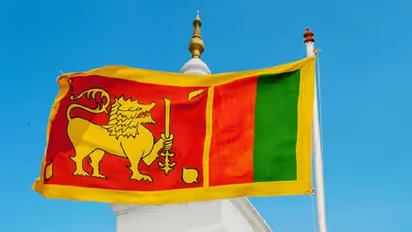Cremation mandatory for COVID-19 deaths in Sri Lanka

Synopsis
Bodies of three Muslims in Sri Lanka were cremated by authorities despite protests from relatives
Colombo: Sri Lanka has amended a law to make cremation compulsory for those dying due to novel coronavirus to prevent any potential threat despite strong opposition from the Muslim community.
The Quarantine and Prevention of Diseases Ordinance (Chapter 222) has been amended by a gazette issued by health minister Pavithra Wanniarachchi, the government said.
"The corpse of a person who has died or is suspected to have died of coronavirus shall be cremated," the gazette dated April 11 stated.
Also read: Foreigners write 'I am so sorry' imposition for defying coronavirus lockdown
The move followed protests from the island's Muslim community which accused the authorities of violating Islamic burial rites.
The process of cremation is forbidden within Islam and Judaism, which require members of the faiths to be buried.
Wanniarachchi said that the body shall be burned at a temperature between 800 to 1200 degree Celsius for a minimum period of 45 minutes to one hour. He said that the cremation should take place at a cemetery or a place approved by the authorities.
The amended law prevents bodies being handed over to anyone other than "to persons who undertake the necessary duties of cremation".
The attire and non-reusable personal protective equipment used by persons who handle the corpse shall also be destroyed during cremation.
The leaders from the Muslim community wanted the government to follow the World Health Organisation guidelines on COVID-19 deaths which allowed both cremations and burials.
Sri Lanka has so far reported seven coronavirus deaths with over 203 confirmed cases.
With the first death of a Muslim from the disease, the health authorities refused burial claiming the disease can make contact with the water table.
At least three persons who died of coronavirus were from the Muslim community.
Meanwhile, the government announced that the island would continue to be in complete lockdown until April 16. This means people will have to celebrate the traditional Sinhala and Tamil New Year on April 13 and 14 indoors.
With PTI Inputs